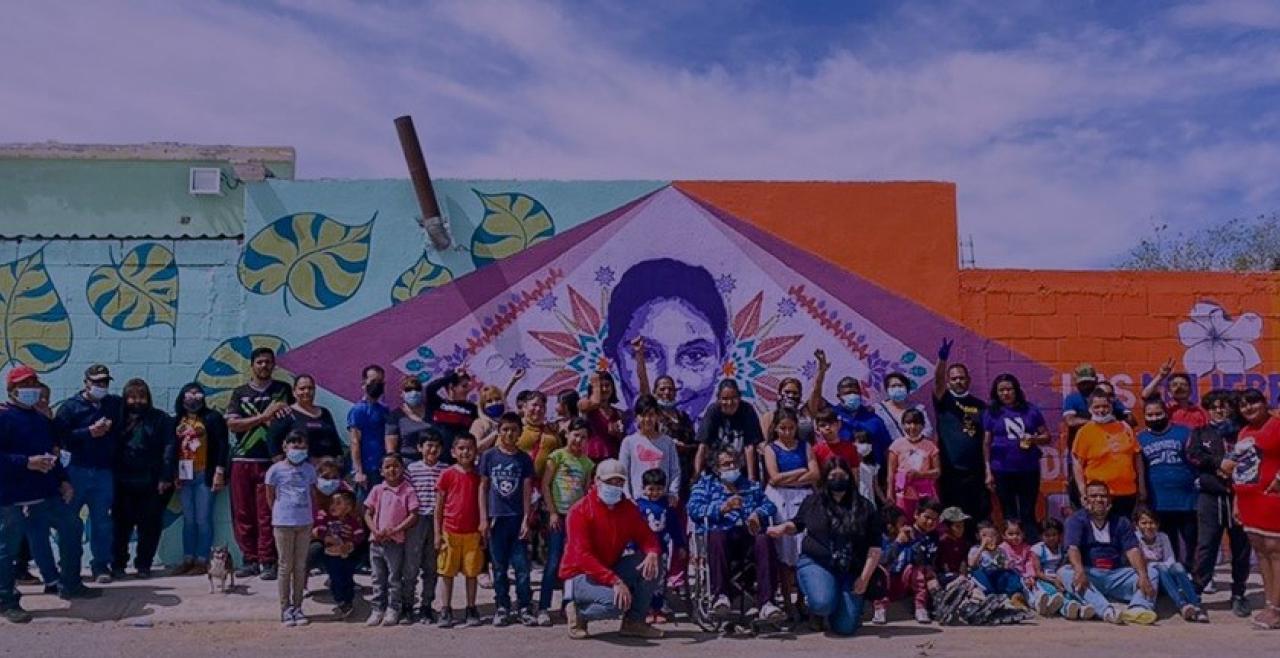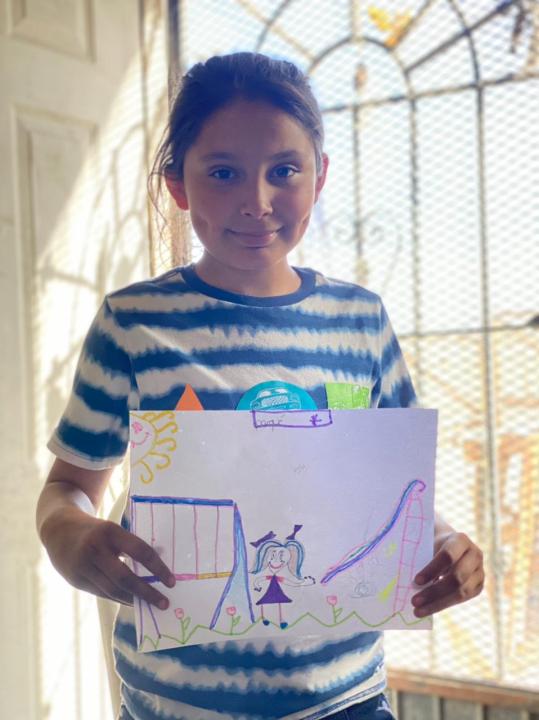Making the streets safer for women and girls in Mexico

CIUDAD JUÁREZ, Mexico - Girls and women have the right to feel safe everywhere yet too often, cities and public spaces are not designed with women’s safety in mind. Insufficient lighting, narrow streets, overgrown vegetation and limited visibility are some of the environmental factors that can leave women vulnerable to aggression, sexual harassment, intimidation or even physical attack. In Ciudad Juárez, Chihuahua, the Senderos de San Isidro neighbourhood was one such place. “Here, a woman no longer felt safe,” said local resident Betzaida Acosta.
"The park was dilapidated, forgotten, dark and unsafe... With the new lighting it will be safer for everyone.” - local resident
Ciudad Juarez has one of Mexico’s highest rates of gender-based violence, significant in a country where more than 10 women are murdered every day. In an effort to make the streets safer for women, the Spotlight Initiative in Mexico worked with the Municipal Institute of Women, the Municipal DIF and the Juárez City Council Secretariat of Public Security on plans to improve the city’s public spaces.
First, a mapping exercise determined the highest risk areas. Colonia Senderos de San Isidro was selected as a priority and local residents were invited to share their suggestions and experiences. Daisy Paloma, a local 10-year-old, pointed out that there were few spaces in the neighbourhood where children could play, while adults highlighted the local park as unsafe. Residents of all ages took part in multiple participatory assemblies, awareness workshops on gender-based violence and interviews to ensure that the public security needs of women and girls were incorporated into plans.
Based on these consultations, a safe path was built to connect the public park with the Josefa Ortiz de Domínguez Elementary School, which serves children in the municipality of Juarez. The route also connects to several public transport stops, ensuring residents can get to and from work in safety. Lights were installed on the homes that line the safe path to improve visibility, pedestrian crossings were installed, traffic signs rehabilitated, and disability access points marked, thanks to collaboration with the General Coordination of Road Safety. “We already feel safer,” said Ms. Acosta.
More than 90 women, men, adolescents, children, and business people who live or work in the community also helped bring Daisy’s vision of a safe play space to life. The 6,000 m2 park was upgraded with solar powered lamps, new play equipment, benches and park furniture, and general upkeep. "Previously, the park was dilapidated, forgotten, dark and unsafe,” said one resident. “With the lighting it will be safer for everyone.”
"[This work] has totally changed the perspective of the locals. There has been a change not just in the people, but in the culture." - Leticia Herrera, resident
“In a few days [this work] has totally changed the perspective of the locals,” said Leticia Herrera, who lives next to the park. “There has been a change not just in the people, but in the culture... Women need support, but when we come together we can achieve a lot.”
The conclusion of the San Isidro project was celebrated with the unveiling of an 80 m2 mural painted by a team of artists from Juarez. Led by Ana Laura Meneses González, they wanted to create a mural celebrating the migrant and working identity of Juarez women. Their chosen subject: Daisy, whose vision contributed so much to the project. Today, neighbours have dubbed the space “Daisy Park”.
The improvements will benefit more than 7000 inhabitants, 49 per cent of them women, and more than 2000 households.
Based on original story by UNODC Mexico

